- News
- Reviews
- Bikes
- Components
- Bar tape & grips
- Bottom brackets
- Brake & gear cables
- Brake & STI levers
- Brake pads & spares
- Brakes
- Cassettes & freewheels
- Chains
- Chainsets & chainrings
- Derailleurs - front
- Derailleurs - rear
- Forks
- Gear levers & shifters
- Groupsets
- Handlebars & extensions
- Headsets
- Hubs
- Inner tubes
- Pedals
- Quick releases & skewers
- Saddles
- Seatposts
- Stems
- Wheels
- Tyres
- Tubeless valves
- Accessories
- Accessories - misc
- Computer mounts
- Bags
- Bar ends
- Bike bags & cases
- Bottle cages
- Bottles
- Cameras
- Car racks
- Child seats
- Computers
- Glasses
- GPS units
- Helmets
- Lights - front
- Lights - rear
- Lights - sets
- Locks
- Mirrors
- Mudguards
- Racks
- Pumps & CO2 inflators
- Puncture kits
- Reflectives
- Smart watches
- Stands and racks
- Trailers
- Clothing
- Health, fitness and nutrition
- Tools and workshop
- Miscellaneous
- Buyers Guides
- Features
- Forum
- Recommends
- Podcast
review
£199.99
VERDICT:
Effective fan for indoor training, but so expensive and sensor modes aren't really necessary
Weight:
5,500g
Contact:
At road.cc every product is thoroughly tested for as long as it takes to get a proper insight into how well it works. Our reviewers are experienced cyclists that we trust to be objective. While we strive to ensure that opinions expressed are backed up by facts, reviews are by their nature an informed opinion, not a definitive verdict. We don't intentionally try to break anything (except locks) but we do try to look for weak points in any design. The overall score is not just an average of the other scores: it reflects both a product's function and value – with value determined by how a product compares with items of similar spec, quality, and price.
What the road.cc scores meanGood scores are more common than bad, because fortunately good products are more common than bad.
- Exceptional
- Excellent
- Very Good
- Good
- Quite good
- Average
- Not so good
- Poor
- Bad
- Appalling
The Wahoo Kickr Headwind training fan is an indoor-training-specific fan with some useful features, and the performance is good. You'll really need to want them to be able to justify spending £200 on it, though, when a very good gym fan costs about a fifth of that.
- Pros: Good focused airflow, HR control works well, neat
- Cons: Not adjustable enough, speed mode is pointless, very expensive
There are four ways to control the Headwind. At the most basic level you can click the buttons on the front of it to make it go faster or slower, but if you're happy doing that you may as well just get yourself a cheap gym fan.
> Find your nearest dealer here
Secondly, you can pair the fan to your smartphone using the Wahoo utility and use your phone as a remote. That means you can start the fan off on a gentle setting, and ramp it up later in your workout. That's handy if your trainer is somewhere cold and you don't want to freeze before you've got the blood flowing, or you're doing a mixed workout with easy sections where you don't want quite as much wind in your face. The Wahoo app also allows you to update the fan's firmware, although there doesn't seem to be much scope for adding new features here.
Thirdly, you can pair the Headwind with a speed sensor, so it does actually mimic a headwind: go faster, and the fan will blow more air in your face. While I'm all for the pursuit of realism in indoor training up to a point, this is just ridiculous. You don't want the fan on minimum as you're grunting up the Alpe du Zwift on your limit, and then on maximum when you're coasting back down again. Ever. It's so pointless I don't even know why Wahoo has done it.
Thankfully there's a sensible fourth option, which is the one I used most of the time to begin with. If you connect to a heart rate monitor strap then you can have the fan blow harder as your heart rate goes up. The utility app allows you to set minimum and maximum heart rates, and the fan does the rest. So it's a gentle breeze in the warm-up, rising to a full-on headwind blast when you're cranking out high-intensity intervals.
It works really well, and it's simple enough to set up: just click the left arrow button until it's on the HR setting and it'll search for an ANT+ HRM strap and pair automatically. It picked up my Wahoo Tickr Fit arm strap every time. Since there's no actual interface for choosing a sensor, it might raise issues if you have more than one bike/HR strap in your pain cave, but that's only going to be a problem for a small minority of users.
> Buyer's Guide: 11 of the best smart home trainers
Over time, though, I found myself using the Bluetooth control on the phone more and more. If you're in a heavy intervals session then you're hot enough between the reps to feel the need for plenty of wind, even if your heart rate has dropped quite low. So I tended to have the fan quite low for the warm-up then boost it before the hard work started. Given that it's easy to control from the handlebar like this, both of the sensor-based modes end up feeling a bit redundant. What would be even better would be to have a simple Bluetooth remote to control the fan so you don't need your phone; not everyone needs it for their indoor training.
The design of the Headwind looks at first glance like it should be able to rotate to any angle around its base, but in fact the angle is fixed. Well, sort of: there's an extendable foot at the back of the unit that you can, erm, extend.
So there are two positions. Two is better than one, but really it's a missed opportunity to have a proper adjustable angle. Everyone's setup and fan needs are different, and personally I found that to have the fan on the floor and for it to be pointing where I want it (in my face) It was too far away to be effective. The set angle seems to be designed to blow air up your body towards your face, but I'd rather have the full force of the fan keeping me from dripping sweat all over bits of my bike. If I'd been able to angle it up some more it would have worked closer to the bike. You can stick a brick under the front, but then it doesn't look as neat. In the end I put it on an adjustable table by the front wheel, and for me that was just right.
Wahoo claims that the Headwind can kick out a 30mph airspeed. Presumably that's measured right by the grille, and the airspeed drops off quite quickly the further away you are, but if you can set the fan up to be reasonably close to you it does kick out quite a breeze, certainly more than my gym fan. The airflow is quite narrow, so the fan needs to be accurately positioned, but assuming it is it's very effective. I was a bit less sweaty than using the gym fan when using both in the same position, high up and quite close to the bike. On the floor I found the gym fan to be more effective, as it's much easier to adjust for tilt and it's not quite as crucial to get it exactly right as the airflow is less focused.
I wasn't expecting to be blown away – I'm here all week, folks – by the Headwind, but mostly I've enjoyed using it. Once you get it set up in a good position, with your HR strap connected, it's a really good fan for indoor training: the best I've tried in terms of actually blowing air at you. Is it better than a £40 gym fan? Overall, yes it is, although I'd like to see better adjustability. Is it five times better? No, of course not. I'll probably miss the Headwind when it goes back as I like the actual blowing of air that it does, but my standard fan does an entirely adequate job for a lot, lot less.
> Buyer's Guide: 16 of the best turbo trainers and rollers
If you want to control a standard fan from your bars then you can search the internet forums for ways to do that, and there are some good home-made solutions out there as well as remote-controlled pedestal fans from about £30 (see here, for example). You could just hack a remote mount for your handlebar; even an elastic band would do the job.
The Headwind scores because it works out of the box, it's neat and it's effective, but for me it'd be better just as a Bluetooth-controlled fan with a remote and an adjustable angle. Wahoo has tried to be too clever, and what you get is one sensor mode that's completely pointless and one that's okay, but no better really than manual control. And it's really, REALLY expensive. I certainly wouldn't be able to justify the spend based on the improvement over a standard fan. You might.
Verdict
Effective fan for indoor training, but so expensive and sensor modes aren't really necessary
road.cc test report
Make and model: Wahoo KICKR Headwind Bluetooth Fan
Size tested: Max: 18"L x 12"W x 19"H
Tell us what the product is for and who it's aimed at. What do the manufacturers say about it? How does that compare to your own feelings about it?
Wahoo says, "The KICKR HEADWIND is the first ever smart fan, designed with the cyclist in mind. Its Targeted Airflow Pattern mirrors the shape and position of a cyclist's body while riding. The KICKR HEADWIND is sensor controlled so as your speed or heart rate increases, so will the fan speed, and there are also 4 manual speed settings should you want to set your own ideal airflow. With speeds of over 30 mph (48 kph), the KICKR HEADWIND will keep you cool during the toughest training sessions."
Tell us some more about the technical aspects of the product?
Wahoo lists these features:
POWERFUL AIRFLOW
With wind speeds topping out at over 30 mph the KICKR HEADWIND will keep you cool during your hardest efforts.
TARGETED AIRFLOW PATTERN
The Targeted Airflow Pattern of the KICKR HEADWIND is designed to mirror the shape and position of a cyclist's body while riding on a bicycle.
SENSOR BASED FAN SPEED CONTROL
Control the speed of your KICKR HEADWIND by pairing your ANT+ speed sensor, heart rate monitor, or smart trainer directly to the fan. As your speed or heart rate increases so will the fan speed.
APP BASED FAN SPEED CONTROL
Pair to the Wahoo App via Bluetooth for easy fan speed control at your fingertips.
4 MANUAL FAN SPEEDS
Control the KICKR HEADWIND with a simple press of a button. Four (4) preprogrammed fan speeds allow you to select your ideal airflow.
KICKR DESK COMPATIBLE
The KICKR HEADWIND was specially designed to fit with the KICKR DESK. The wheels on the KICKR HEADWIND allow you to roll the fan into position when it is attached to your KICKR DESK.
Motor Spec: 240v 50/60hz
Dimensions (leg tucked): 16"L x 12"W x 19"H
Dimensions (leg extended): 18"L x 12"W x 19"H
Weight: 12 lb
Max Fan Speed: 30 mph/48 kph
Wireless Software Updates: Yes
Connectivity:
Bluetooth - Pair to phone to control the fan speed via app
ANT+ - Pair to speed sensor, heart rate monitor, or smart trainer to control fan speed
Adjustable Leg: Yes - 2 Positions
Rate the product for quality of construction:
8/10
Seems well made, no issues during testing.
Rate the product for performance:
7/10
App control and HR control are good, speed control is pointless but works. Could do with being adjustable for angle. Airflow is excellent.
Rate the product for durability:
9/10
No reason to suspect it won't last.
Rate the product for value:
3/10
£200 for a fan. Whichever way you slice it up, that's a huge price tag that's hard to justify.
Tell us how the product performed overall when used for its designed purpose
I enjoyed using it, it works well.
Tell us what you particularly liked about the product
Heart rate control, good focused airflow.
Tell us what you particularly disliked about the product
Very expensive, lack of angle adjustability, daft speed control option.
How does the price compare to that of similar products in the market, including ones recently tested on road.cc?
It's not really comparable to anything else directly, but it's five times the price of my good quality gym fan.
Did you enjoy using the product? Yes
Would you consider buying the product? No
Would you recommend the product to a friend? If they were loaded, yes.
Use this box to explain your overall score
It's a really nice fan. But it's not worth £200, and the sensor modes would be better replaced by a simple remote.
About the tester
Age: 45
I usually ride: whatever I'm testing... My best bike is: Kinesis Tripster ATR, Merida Scultura
I've been riding for: Over 20 years I ride: Every day I would class myself as: Experienced
I regularly do the following types of riding: road racing, time trialling, cyclo-cross, commuting, touring, club rides, sportives, general fitness riding, fixed/singlespeed, mountain biking, Mountain Bike Bog Snorkelling, track
Dave is a founding father of road.cc, having previously worked on Cycling Plus and What Mountain Bike magazines back in the day. He also writes about e-bikes for our sister publication ebiketips. He's won three mountain bike bog snorkelling World Championships, and races at the back of the third cats.
Latest Comments
- Webstaff 1 hour 14 min ago
Those same car are also likely to have auto stop....
- Webstaff 1 hour 30 min ago
Also we only get one side of the story when it's social media....
- No Skinny Tyres 2 hours 1 min ago
It's a stabiliser, it was first used in WW2 to preserve chocolate in US rations. It allows the milk solids to fully dissolve, US chocolate is less...
- Rome73 2 hours 16 min ago
LOL , me too the other day, I was on my GSD and got stuck behind a Cadillac Escalade (I think that is what they are called). It was so fat and over...
- eburtthebike 10 hours 48 min ago
The deterrent effect is almost certainly due to the massively increased likelihood of the offence being detected. As with other crimes, if the...
- Martin1857 11 hours 15 min ago
As a member of the Co-op community (I live in a Housing Co-op) and a bike owner /rider, this is very sad news. We need more Co-ops not less.
- Dnnnnnn 11 hours 6 min ago
It is sad for the individuals concerned but (and this is a general point, rather than specific to this story), we're much better off overall for...
- No Reply 11 hours 57 min ago
I agree with Pogacar regarding social media. The likes of Facebook, Instagram have done untold damage, especially to the minds of young people....
- David9694 12 hours 2 min ago
Lorry carrying 25 tonnes of beer catches fire on the M11...
- ktache 13 hours 7 min ago
That looks like a fun bike. Frame only, 2 and an 1/2 grand.




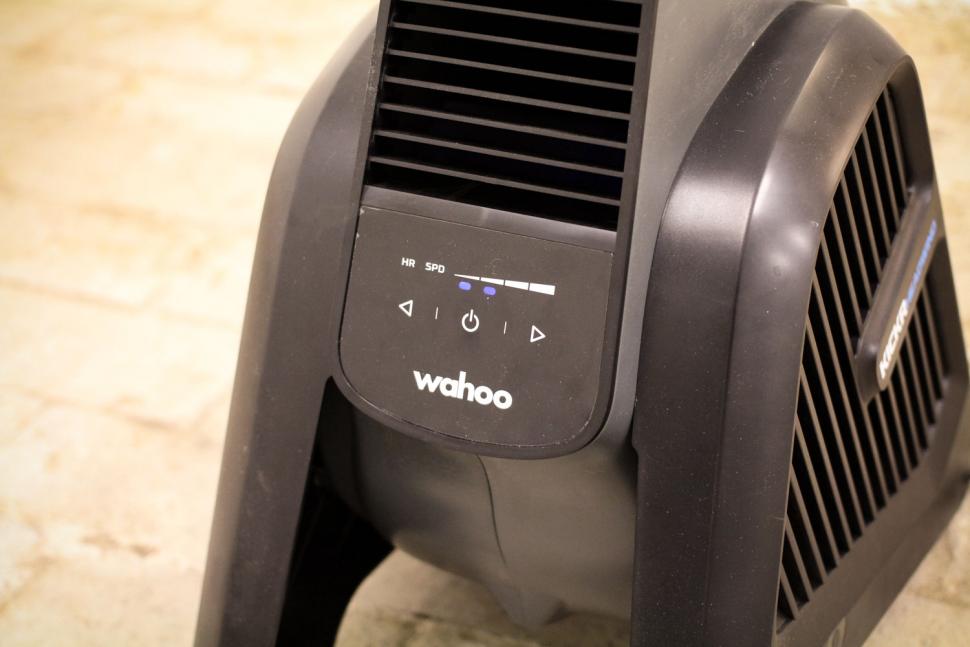
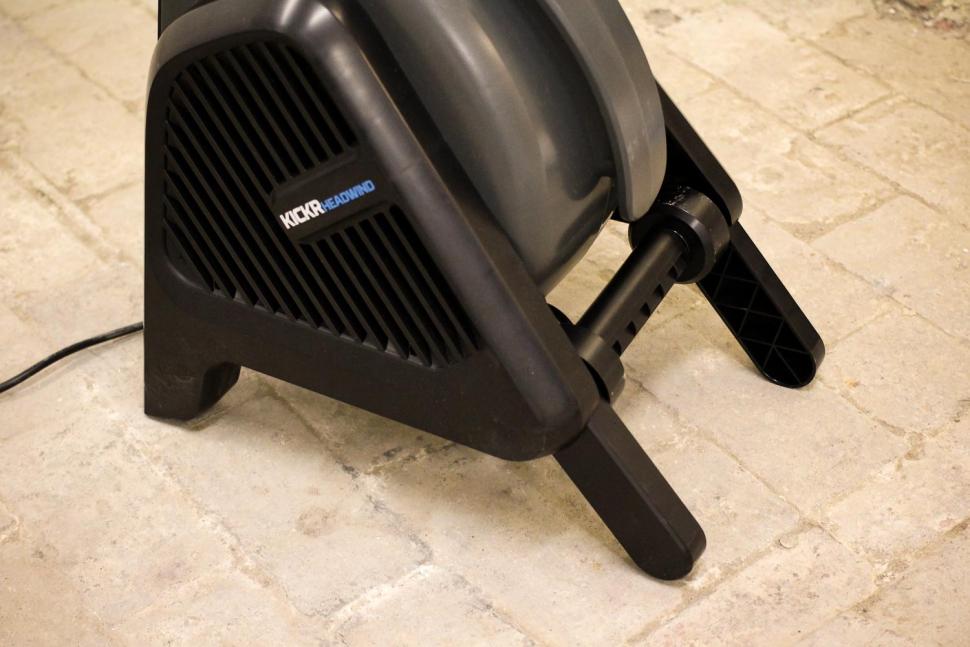
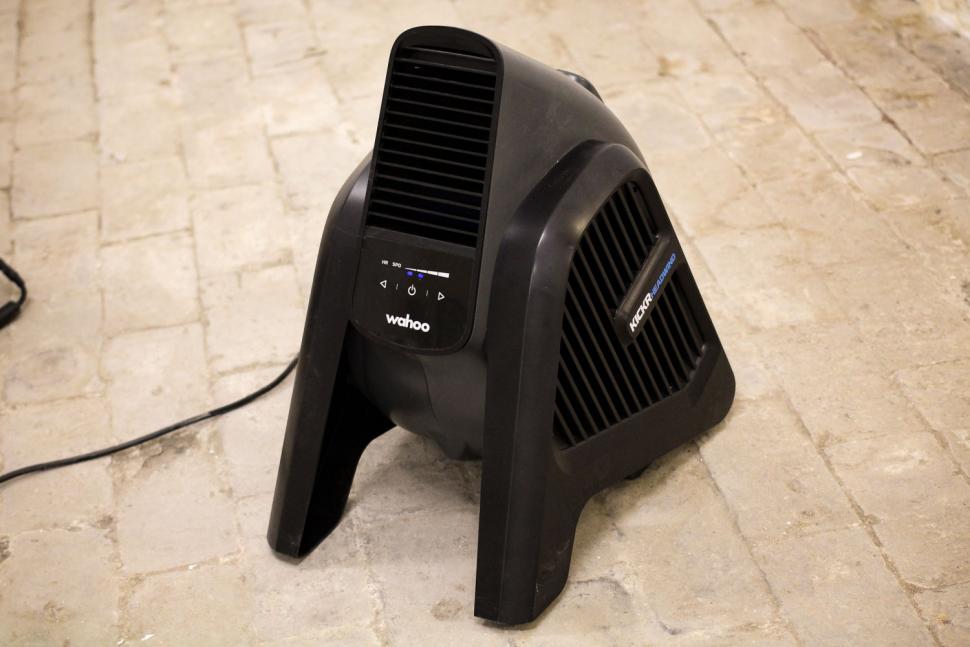
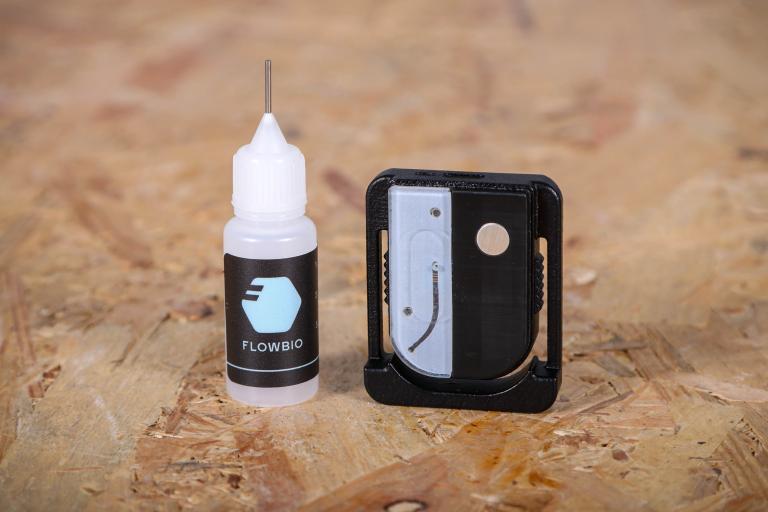
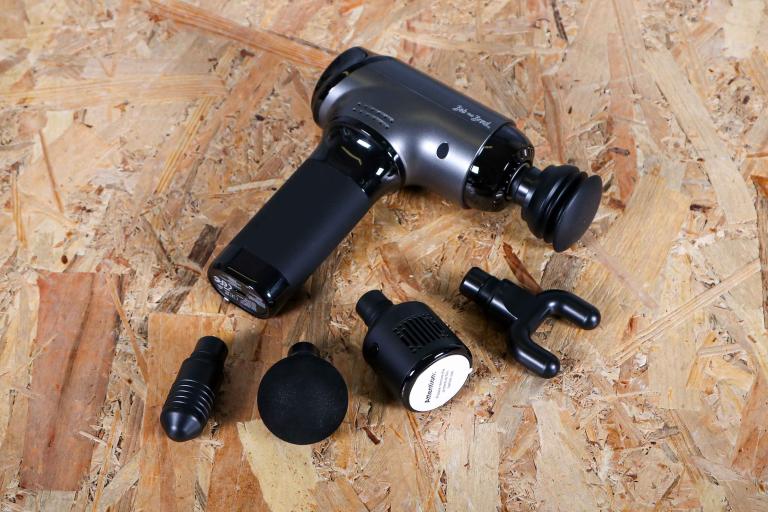
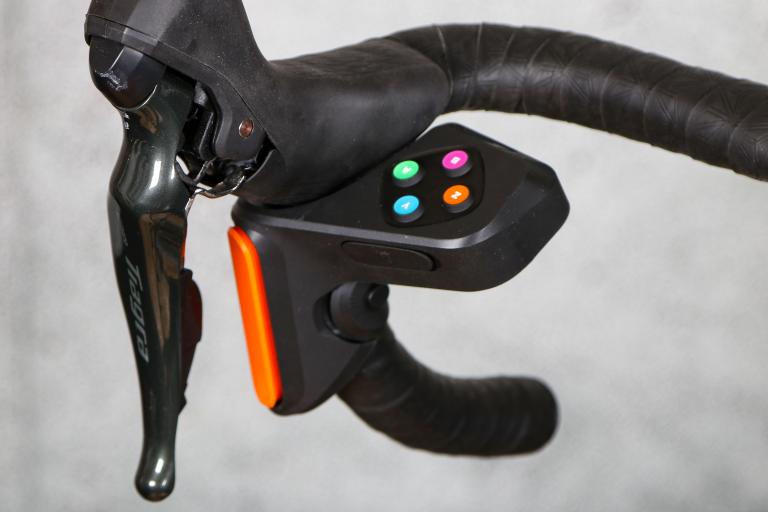

Add new comment
35 comments
It is, having tried one.
Not necessary - this is certainly way over-priced but it seems to work, and work pretty well from my brief experience and the feed-back from others with vastly more time and expertise of the options. Would I get one ? Staggeringly unlikely unless I suddenly came into some money.
having tried various versions of both, i much prefer a gym fan, which pushes a lot more air than a floor standing fan. your mileage may vary.
You may know more about fans than me, but how does it manage that?
Through a combination of propellor (impellor) pitch, shape and speed, reflected in power consumption. 'Gym fans' (which someone has knowledgably pointed out is just a fan) are designed to move a larg(ish) quantity of air reasonably quickly, whereas our average floor standing fan is just to move some air. It really does depend on the size of the fan. Some floor standing fans move quite a lot of air. Checking the power consumption is going to be a reasonable indicator.
Me? I have a35 quid plastic bouncy castle fan which moves about 1200 cu.f.m and provides a wind of about 45 mph. I position it on a table a little distance away, turn it on and pedal.
I love my Kickr and Kickr Climb, both bought when Wiggle still offered their loyalty discount on Wahoo products. The saving was enough that I did really think long and hard about the Headwind.
I then slapped myself round the head a couple of time and just pocketed the savings.
Pages